|
Page < 1 2 3 4 5 6 7 8 9 10 11 12 13 14 15 16 17 18 19 20 21 22 23 24 >
Rape of India
by the British - Civilizing the Heathens -
White Man's Burden?
The Wealth of India
"While
we hold onto India, we are a first rate power. If we lose India, we will decline
to a third rate power. This is the value of India."
-
So spoke Lord
Curzon
in 1901, one of 11 viceroys of British India (from 1898
to 1905) who was educated at Eton College, one of England's top private schools.
(source: India
Britannica - By Geoffrey Moorhouse c. prologue). Refer
to QuickTime trailer and Part One of the film The
God Awful Truth.
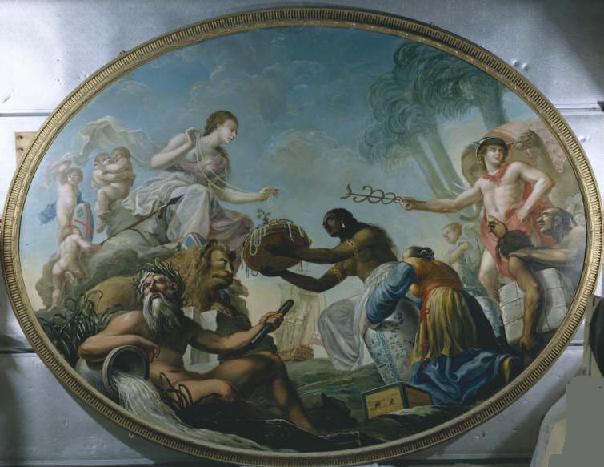
Britannia,
a lion at her feet, examines a string of pearls she has taken from a cushion
held up by an Indian woman.
Soon
India
would be depicted as a naked black female submissively offering her rich jewels
to Britania.
India
now entered in the
cataclysmic epoch which has left few native cultures of the world intact – the
era of colonialism. The Indians, bearers of the world’s oldest civilizations
were treated like children by people who thought themselves as superior race.
(image
source: British
Library. Refer to India: Empire of the
Spirit - By Michael Wood).
***
American Historian
Will
Durant (1885-1981) would like the
West to learn from India, tolerance and gentleness and love for all living
things. He has observed:
"British rule in India
is the most sordid and criminal exploitation of one nation by another in all
recorded history. I propose to show that England has year by year been bleeding
India to the point of death, and that self-government of India by the Hindus
could not within any reasonable probability, have worse results than the present
form of alien domination."
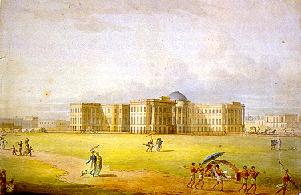 "I
went to
India
to help myself visualize a people whose cultural history I had been studying
for The Story of Civilization. I did not expect to be attracted by the Hindus,
or that I should be swept into a passionate interest in Indian politics. But I
saw such things in
India
as made me feel that study and writing were frivolous things in the presence of
a people – one fifth of the human race – suffering poverty and oppression
bitterer than any to be found elsewhere on the earth. I was horrified. I had not
thought it possible that any government could allow its subjects to sink to such
misery. "I
went to
India
to help myself visualize a people whose cultural history I had been studying
for The Story of Civilization. I did not expect to be attracted by the Hindus,
or that I should be swept into a passionate interest in Indian politics. But I
saw such things in
India
as made me feel that study and writing were frivolous things in the presence of
a people – one fifth of the human race – suffering poverty and oppression
bitterer than any to be found elsewhere on the earth. I was horrified. I had not
thought it possible that any government could allow its subjects to sink to such
misery.
I came
away resolved to study living India as well as the India with the brilliant
past; to learn more of this unique Revolution that fought with suffering
accepted but never returned; to read the Gandhi of today as well as the Buddha
of long ago.
The
civilization that was destroyed by British guns has lasted for more than fifteen
centuries has produced saints from Buddha to Gandhi; philosophy from the Vedas
to Schopenhauer and Bergson, Thoreau and Keyserling, who take their lead and
acknowledge their derivation from
India
. (
India
, says Count Keyserling,
“has produced the profoundest metaphysics that we
know of”; and he speaks of “the absolute superiority of
India
over the West in philosophy”); poetry from the Mahabharata, containing the
Bhagavad-Gita, “perhaps the most beautiful work of the literature of the
world. And how shall we a civilization that created the unique and gigantic
temples of Ellora, Madura and
Angkor
?
The more
I read the more I was filled with astonishment and indignation at the apparently
conscious and deliberate bleeding of
India
by
England
throughout a hundred and fifty years. I began to feel that I had come upon the
greatest crime in all history. I know how weak words are in the face of guns and
blood; how irrelevant mere truth and decency appear beside the might of empires
and gold. For I know of nothing in the world that I would rather do than to be
of help to
India
.
The
British conquest of India was the invasion and destruction of a high
civilization by a trading company utterly without scruples or principle,
careless of art and greedy of gain, overrunning with fire and sword a country
temporarily disordered and helpless, bribing and murdering, annexing and
stealing, and beginning that career of illegal and “legal” plunder which has
now gone on ruthlessly for one hundred and seventy-three years, and goes on at
this moment while in our secure comfort we write and read.
Aurangzeb,
the Puritanic Moghul emperor who misgoverned
India
for fifty years when he died the realm fell to pieces. It was a simple matter
for a group of English buccaneers, armed with the latest European artillery and
morals to defeat the petty princes. It was the wealth
of 18th century
India
which attracted the commercial pirates of
England
and
France
. This wealth was created by the Hindus’ vast and varied industries and trade.
It was to reach
India
of fabulous wealth that
Columbus
sailed the seas. It was this wealth that the East India Company proposed to
appropriate. Already in 1686 its Directors declared their intention to
“establish …a large, well grounded, sure English dominion in
India
for all time to come.”
(source:
The
Case for India - By Will Durant Simon and Schuster,
New York. 1930 p.1 - 17).
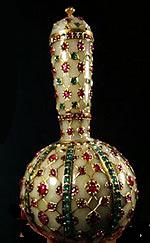 Lord
Robert Clive was penniless and in debt when he first set foot in India as a
clerk in the East India Company in 1743, but within 20 years he had become one
of the richest men in England. Part of that wealth was the collection of
decorative arts and jewelled objects he had assembled as an officer of the East
India Company army. Lord
Robert Clive was penniless and in debt when he first set foot in India as a
clerk in the East India Company in 1743, but within 20 years he had become one
of the richest men in England. Part of that wealth was the collection of
decorative arts and jewelled objects he had assembled as an officer of the East
India Company army.
Most of the foreigners came to India in search of
her fabulous wealth. Ernest Wood, in the book "A Foreigner defends Mother
India" states, "In the middle of the eighteenth century, Phillimore
wrote that 'the droppings of her soil fed distant regions'. No traveler found
India poor until the nineteenth century, but foreign merchants and adventurers
sought her shores for the almost fabulous wealth,
which they could there obtain. 'To shake the pagoda
tree' became a phrase, somewhat similar to our modern expression 'to
strike oil'."
(source: http://www.bharatvani.org/general_inbox/pramod/indic_education.html).
Sir William Curzon
Wyllie as "one of the old unrepentant foes of India who had
fattened on the misery of the Indian peasantry."
Yale
University and
the Wealth from India
Yale
University in the United
States was founded in 1718 with the help of a cargo of gift raised in India by
Elihu Yale, who was a governor of Madras.
For more on Elihu Yale refer to chapter on Glimpses
VIII.
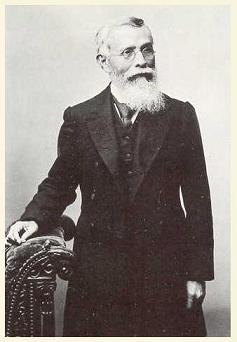 Dadabhai
Naoroji (1825-1917) a Bombay Parsi who sat in the British House of
Commons, also called the The
Grand Old Man of India, presented to the British people the
"Drain Theory", which put before them the facts and figures
illustrating systematic bleeding of the wealth and resources of India. Dadabhai
Naoroji (1825-1917) a Bombay Parsi who sat in the British House of
Commons, also called the The
Grand Old Man of India, presented to the British people the
"Drain Theory", which put before them the facts and figures
illustrating systematic bleeding of the wealth and resources of India.
His ideas
were put into a volume called "Poverty and UnBritish rule in India".
He wrote in 1901:
"I need only say that the
people of India have not the slightest voice in the expenditure of the revenue,
and therefore in the good government of the country. The powers of the
Government being absolutely arbitrary and despotic, and the Government being
alien and bleeding, the effect is very exhausting and destructive indeed."
Naoroji
said this on the Debate on the Indian famine that took place at
Kennington
,
UK
:
“When
the British people first obtained territorial power in
India
, bad seeds were unfortunately sown. The Company went there solely for the sake
of profit, greed was at the bottom of everything they did, and the result was
that corruption, oppression and rapacity became rampant.
One
result was that there was a heavy drain of wealth from
India
, and the Europeans who went there were so anxious to acquire riches that they
did not wait until they had earned or deserved them, but they seized them in
defiance of all economic principles. That was one cause of
India
’s trouble.
Everything
expended upon the formation of the British Empire in
India
had been extracted from the Indian people, and, in addition to that, the
Natives had shed their blood freely – and to a much greater extent than
Englishmen – in order to insure the maintenance of the British supremacy."
(source: Poverty
and Un-British Rule in India - By Dadabhai Naoroji
- p. ix-x and p. 578
– 579).
Buckminster
Fuller (1895-1893) philosopher, thinker, visionary, inventor,
architect, engineer, mathematician, poet, cosmologist, inventor of the geodesic
dome, once said:
"The British were perhaps the most successful pirates in history. They came
to India, pillaged the country in the name of trade and then enslaved it in the
name of civilization."
(source: Indian Express
- Flair 8/5/2001) Refer to Jesus
Christ: Artifice for Aggression - By Sita Ram Goel
Another Englishman, the late H.
M. Hyndman, after detailing the proof that taxation in India was far
heavier than in any other country, though its population is poorer, entitled his
book The Bankruptcy of India.
(source:
The
Case for India - By Will Durant Simon and Schuster,
New York. 1930 p. 22).
By the 19th century, the
distant territory (India) shone as the brightest
jewel in the British Crown.
When the traders from England's East India Company arrived on the subcontinent
of India in the 17th century, they found a fascinating land of pungent spices
and luxurious textiles, magnificent art and architecture, and impressive works
of literature and science. India was an "El Dorado" for enterprising
young men in search of fortune. By the 19th century, the distant territory shone as
the brightest jewel in the crown. It remained a prize beyond comparison, valued so highly that, as British viceroy
Lord Curzon stated in 1900, "We could lose all our dominions and still
survive, but if we lost India, our sun would sink to its setting."
Almost overnight India changed
her position from being a jewel in the British crown to her present position as
a part of the Third World. The concept of
the Third World and the contempt which goes along with this concept was acquired
recently.
For more on the Imperial Plunder refer to chapter
on Glimpses VIII.
India
's Amazing Contribution to
the World Economy Throughout History -- Until the British Came..
Overnight India becomes a 'Third World' Nation...
"Consumers
in most major cities of the world can buy Indian jewelry and clothing. This
statement is true today, but it would also have been true four thousand years
ago. Goods, ideas, and religious concepts "made in India" have been
exported to markets around the world since the people of the subcontinent built
their first cities in the Indus Valley in the third millennium B.C.E."
"The enormous manufacturing and trade balance
advantages that
India
had enjoyed for some 2,500 years were slowly wiped out as a result of British
colonial control of the subcontinent. In 1750, with the start of
significant British presence in the north,
India
at the end of Mughal power was still producing about one-fourth of the world's
manufactured goods. It was not until the nineteenth century that British
manufacturers could cheaply produce cotton cloth that equaled Indian quality. By
using Indian-grown cotton to make cloth by machine at home, they finally ended
India
's superiority. With increasing political control, the British were even able to
force Indian consumers to buy inferior British fabrics."
"By 1850, with the establishment of British
control over political and economic life,
India
's share of world manufacturing had sunk to a mere 8.6 percent of world
production. At the time of
India
's independence from
England,
India
was producing only 1.5 percent of world manufactures. Clearly colonialism had
"underdeveloped"
India
as an economic giant."
(source: India
in World History – askasia.org).
***
Age of Enlightenment
and Imperialism
"The strongest claim by the West on
modernity is derived from ideas and concepts generally grouped under the
category of The Enlightenment. It was at the
time that the idea of progress gained popular acceptance in the West. It was a
time when Europeans emerged from a long twilight, from which the past was
considered barbaric and dark. It most serious shortcoming was the assumption that European
values derived from European experience were universal truth and that such truth
gave license to world dominance: the rest of the world, to escape domination and
exploitation, must adopt Western ways of militarism and exploitation. "
"It's
one of the great paradoxes of modern history that during the Age
of Enlightenment, at the
same time that Europeans were becoming conscious of the basic rights of man,
they were also capturing, brutalizing..."
(source:
The
Enlightenment and modernity - asiatimes.com and
Blood,
sweat and tears - Radio Netherlands).

Indians as Inferior Race?
Racism in British India.
Lord
Mayo (1822 - 1872) declared, "We are all British gentlemen engaged in the
magnificent work of governing an inferior race in India."
(Note:
The legacy of Western civilization to the world - Dark
Ages, Crusades, The Inquisition, Witch Hunt, Slavery, Colonization of Africa,
Asia, America and Australia, Imperialism, World Wars, Holocaust, Bombing of
Nagasaki and Hiroshima, Conversion and destruction of Native cultures to
Christianity, Drugs, School shootings in American schools, Gun violence, Racism,
Clergy sex Abuse, Viagra spamming American Capitalism, quest
for individualism, Iraq war ….
).
(image
source:
Imperial
Lives in the Victorian Raj - By David Gilmour).
For more refer to Aryan
Invasion Theory. Refer to
Loot:
in search of the East India Company - By
Nick Robins and
How
India became poor - indiarealist.com
***
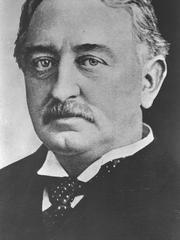 Cecil
Rhodes and the British Empire Cecil
Rhodes and the British Empire
One
of the wealthiest, most influential man, Cecil
Rhodes (1853 - 1902) who wrote in a document called Confession
of Faith:
“I
contend that we are the finest race in
the world and that the more of the world we inhabit the better it is for the human race..."
“Why
should we not form a secret society with but one object: the furtherance of the
British Empire and the bringing of the whole uncivilized world under British
rule, for the recovery of the United States, and for the making of the
Anglo-Saxon race but one Empire?
"
“Africa
is still lying ready for us, it is our duty to take it. It is our duty to seize
every opportunity of acquiring more territory and we should keep this one idea
steadily before our eyes: that more
territory simply means more of the Anglo-Saxon race,
more of the best, the most human, most honourable race the world possesses”
(source: The
New Environmentalist Eugenics: Al Gore’s Green Genocide).
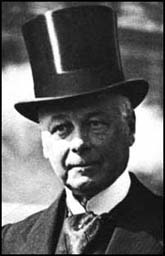 Sir
William Joynson-Hicks (1865 – 1932) Home Secretary in the Baldwin
Government, candidly expressed that: Sir
William Joynson-Hicks (1865 – 1932) Home Secretary in the Baldwin
Government, candidly expressed that:
“I
know it is said in missionary meetings that we conquered
India
to raise the level of the Indians. That is cant. We conquered
India
as an outlet for the goods of
Great Britain. We conquered
India
by the sword, and by the sword we shall hold it.”
(source: The
Case for India - By Will Durant Simon and Schuster,
New York. 1930
p. 163 – 164).
Injustice
and Brutality of the Colonial system
The British tend to get so
carried away with Raj nostalgia as to imbue it with a rosy hue. They forget that
the Raj was hateful and oppressive to the many millions who had to bear its
brunt. It is not just that these millions had to suffer alien rule but also that
its self-interested interventions led to the country's economic ruin and
cultural degradation. The Raj is but an instance of colonialism that held sway
over many parts of the globe till about the middle of the last century. The
colonial system had much inbuilt injustice and brutality, largely concealed as
victims were often voiceless. In parts of North and
South America
, it led to a sustained genocide that wiped out entire civilisations over a few
centuries. British colonial enterprise in
India
never got so vicious. This is not because the rulers
were benign but because the country had a large population and was
civilisationally advanced. The British in
India
knew well the limits of their power and took care not to exceed the tolerance
levels of the people. It was precisely the fear of events like that of 1857 that
kept them in check. However, colonialism in
India
did have its dark side, such as repression, racism and
institutionalised exclusion. Indeed, with its stress on racism, the
system was anything but admired though it may have been feared or used by those
who chose to be co-opted. In any event, colonialism, for all its presumed
benefits for those who were colonised, does not merit praise; it is considered a
dark chapter of our history.
(source: Relics
of the Raj -
The
Pioneer Edit Desk September 26, 2007 Wednesday).
Refer to
Oppose
Christian Missionaries and
Radical
Christian Missionaries in
Iraq
.
How
do we know that Christians are delusional?
For
Cruelty inflicted by Christianity - Watch Constantine's
Sword movie - By Oren Jacoby and
Stolen
Kingdom: An American Conspiracy
- By Budnick,
Rich (1992).
Honolulu
: Aloha Press.
Caring
Colonialism?
Church
of England Head lauds and justifies British Raj
 The
spiritual head of the Church of England has launched an extraordinary
defence of the British Raj, saying it was benign to
India
compared with cack-handed American neo-imperialism in Iraq. The
spiritual head of the Church of England has launched an extraordinary
defence of the British Raj, saying it was benign to
India
compared with cack-handed American neo-imperialism in Iraq.
Dr
Rowan Williams, the Archbishop of Canterbury, who officially leads
nearly 80 million Anglicans worldwide, told a British Muslim lifestyle magazine
that the British experiment in
India
was an example of caring colonialism.
Refer
to Islam
– Christianity’s angry sibling? - faithfreedom.org and
The Jesus Police.
Refer to
Oppose
Christian Missionaries and
Radical
Christian Missionaries in
Iraq
.
(Refer
to All
religions are not same
- By Swami
Aksharanand
- The
concept that “All religions are one” as propagated by Gandhi incessantly is
the most destructive concept that is affecting us all. It
is not only silly but dangerous fallacy to propagate the idea that all religions
are one.
Hindus, who are under severe attacks
every day by the same forces of Allah and Christ.
Hinduism and other religions can’t be equated and called same because
“religions” of the world have been born in the environment of hostility).
Refer to
It's
Imperialism, Stupid - By
Noam Chomsky. Refer
to Iraq:
The Hidden Cost.
Watch
Why
we fight
(2005)
documentary
- Imperial
and technological arrogance of world's Super power:
describes the rise and maintenance of the
United States
military-industrial complex and its involvement in the wars led by the
United States
during the last fifty years, and in particular in the 2003
Invasion of Iraq.
The film alleges that in every decade since World War II, the American public
has been told a lie to bring it into war to fuel the military-economic machine,
which in turn maintains American dominance in the world.
Watch No
end in sight documentary (2007) and refer to The
Looting of Baghdad museum:
US
government implicated in planned theft of Iraqi artistic treasures
- The
pillaging of the
Baghdad
Museum
is a tragedy that has no parallel in world history; it is as if the Uffizi, the
Louvre, or all the museums of
Washington
D.C.
had been wiped out in one fell swoop. Some compare the event to the burning of
the Alexandria Library. Eight thousand years of human history has been erased in
two days. Prince
Andrew rebukes US on
Iraq
- He
said the
US
should have learned lessons from British colonial
history
and he added that there had been "occasions when people in the
UK
would wish that those in responsible positions in the
US
might listen and learn from our experiences".
Also
refer to
Despoliation and Defaming
of India – By Dharampal and The
Raj Syndrome: A Study in Imperial Perceptions - By Suhash Chakravarty.
Penguin Books. 1991
and Late
Victorian Holocausts - By Mike Davis and Year
501: The Conquest Continues - By Naom Chomsky.
On Sunday, the comments
were criticised by observers as a patronising
justification of imperial
Britain
's grip on
India. Sources
said it was surprising that Williams, a long-term critic of the Anglo-American
2003 invasion of Iraq, was getting into dangerous historical territory such as the British Raj.
(source: Church
of England head lauds British Raj - timesofindia.com November
25, 2007.Refer
to Iraq:
The Hidden Cost
and Iraq
’s
erasure and Asian racial delusions - By
Dr Gautam Sen
- The
Americans set out to destroy
Iraq
, which is why they began a calculated genocidal war against it. The mere
removal of Saddam Hussein, whom they themselves had put into power decades
earlier and nurtured cynically, was clearly inadequate for their goal of
dismantling
Iraq
comprehensively. The moment the Americans destroyed
Iraq
’s museums and libraries it was clear that the contemporary
descendants of the Mongol scourge, Hulegu (destroyer of
Baghdad
in 1251AD) had arrived. The killing of Iraqis on a massive scale by Bush and
his Leftist British minions has been accompanied by the targeted elimination of
professionals. The destruction of Iraqi civilisation is
being completed by erasing its historical records and cultural artefacts, the
conduits of collective historic memory. The brutal Romans, though more civilised than modern
Americans, would have recognised the imperial logic of scorched earth to secure
rule).
Refer to
Loot:
in search of the East India Company - By
Nick Robins and
How
India became poor - indiarealist.com.
 Note:
Ironically,
Dinesh
D'souza (dubbed
the Uncle Tom
- Uncle Tom is a pejorative
for a black person who is perceived by other blacks as subservient to
white authority figures, or as seeking ingratiation with them by way of
unnecessary accommodation. The term Uncle Tom comes from the title character of Harriet
Beecher Stowe's novel Uncle
Tom's Cabin), much like
Clarence Thomas who
sold their souls for a few bucks or a coveted job)
author of The
End of Racism (wrote
that in his book: "The American slave
was treated like property, which is to say, pretty well.") Note:
Ironically,
Dinesh
D'souza (dubbed
the Uncle Tom
- Uncle Tom is a pejorative
for a black person who is perceived by other blacks as subservient to
white authority figures, or as seeking ingratiation with them by way of
unnecessary accommodation. The term Uncle Tom comes from the title character of Harriet
Beecher Stowe's novel Uncle
Tom's Cabin), much like
Clarence Thomas who
sold their souls for a few bucks or a coveted job)
author of The
End of Racism (wrote
that in his book: "The American slave
was treated like property, which is to say, pretty well.")
Refer
to It's
Imperialism, Stupid - By
Noam Chomsky and Year
501: The Conquest Continues - By Naom Chomsky. For
Cruelty inflicted by Christianity - Watch Constantine's
Sword movie - By Oren Jacoby
Refer
to
Iraq:
The Hidden Cost
and Missionary
Diplomacy
-
Laura
Bush’s
Burma
crusade,
driven by a moral and religious calling, has increasingly pushed that
strategically located country into
China
’s strategic lap while undercutting Indian interests.
Also
referto
Why
do Christian missionaries love natural disasters? - in China and Mynmmar.
Dinesh D'souza,
an Indian Christian and the Cheerleader of the
British Imperialism, has observed:
"The
West did not become rich and powerful through colonial oppression
in and that the
descendants of colonialism are better off than they would be if colonialism had
never happened...:, in his article - Two
Cheers for Colonialism).
The
article is a racist piece of historical revisionism that regurgitates
unoriginal and trite arguments, which are reminiscent of discussions on the
merits of the "white man's burden"
A few pages of Mike
Davis's "Late Victorian Holocausts" describing the Indian
famines of the early 20th century is enough to puncture any colonialist's puffed
up balloon of claim to managerial skill or social responsibility. An analysis of
India's GDP and vital statistics 1750-1947 will show you how British rule
impoverished India. Please refer to Dharampal's
book - Beautiful Tree and you will
learn how the primary educational system in India worked when the East India
Company began to take over India).
The
sheer scope of their rapine is staggering. Capital removed, societies
destroyed. As a single example of the social cost, historian William
Digby - Prosperous British India
estimated that the population of Dhaka dropped from 200,000 to 79,000 between
1787 and 1817; the export of Dacca muslin to England amounted to 8,000,000
rupees in 1787; in 1817, nil. The fine textile industry, the livelihoods of
thousands, and the self-sufficient village economy, were systematically
destroyed.
A strong
case has been made by William Digby quoting Brooks
Adams that the Industrial Revolution (circa 1760) could not have happened in
Britain had it not been for the loot that came in from India. It is
indeed a curious coincidence: Plassey (1757); the flying shuttle (1760); the
spinning jenny (1764); the power-loom (1765); the steam engine (1768). Look at
some individuals and their 'East Indian Fortunes' (P J Marshall)--all numbers in
pounds: Robert Clive estimated in 1767 that his net worth was 401,102. John
Johnston had 300,000. Richard Smith amassed in 1764-1770 a fortune of 250,000
pounds. Note that these company officers' average salary was between 1,000 and
5,000 per year. Marshall estimates a total of 18,000,000 pounds as the *private*
fortunes of these officers in the period 1757-1784. This,
of course, in addition to official East India Company pillage.
Digby
estimated in 1901 that the total amount of treasure extracted from India by the
British was 1,000,000,000 pounds--a billion pounds. Considering the looting from
1901 to 1947 and the effects of inflation, this is probably worth a trillion
dollars in today's money. Serious money, indeed. Shouldn't we ask for some
reparation?
(source:
Rajeev
Srinivasan http://www.rediff.com/news/aug/04rajee1.htm).
Refer to QuickTime trailer and Part One of the
film The
God Awful Truth.
The wealth of the
colonies returned to Britain, creating huge fortunes. By 1700, the East India
Company accounted for "above half the trade of the nation," one
contemporary critic commented. Through the following half-century, Jphn Keay writes, its shares became
the "equivalent of a gilt-edged security, much sought after by trustees,
charities and foreign investors." The rapid growth of wealth and power set
the stage for outright conquest and imperial rule. British officials, merchants,
and investors "amassed vast fortunes,"
gaining "wealth beyond the dreams of avarice."
Two English historians of India,
Edward
Thompson and G. T. Garrett, described the early history of British
India as:
"perhaps the
world's high-water mark of graft": "a gold-lust unequalled since the
hysteria that took hold of the Spaniards of Cortes' and
Pizzaro's age filled the English mind. Bengal in particular was not to know
peace again until she has been bled white."
The fate of Bengal
brings out essential elements of the global conquest. Calcutta and Bangladesh
are now the very symbols of misery and despair. In contrast, European
warrior-merchants saw Bengal as one of the richest
prizes in the world. An early English visitor described it as "a
wonderful land, whose richness and abundance neither war, pestilence, nor
oppression could destroy." Well before, the Moroccan traveller Ibn
Battuta had described Bengal as "a country of great extent, and
one in which rice is extremely abundant. Indeed, I have seen no region of the
earth in which provisions are so plentiful." In 1757, the same year as
Plassey, Clive described the textile center of Dacca as "extensive,
populous, and rich as the city of London"; by 1840 its population had
fallen from 150,000 to 30,000, Sir Charles Trevelyan testified before the Select
Committee of the House of Lords, "and the jungle and malaria are fast
encroaching... Dacca, the Manchester of India, has fallen from a very
flourishing town to a very poor and small town." It is now the capital of
Bangladesh.
After the British takeover, British traders, using "every conceivable form
of roguery," "acquired the weavers' cloth for a fraction of its
value," English merchant William Bolts
wrote in 1772: "Various and innumerable are the methods of oppressing the
poor weavers...such as by fines, imprisonments, floggings, forcing bonds from
them, etc." "The oppression and monopolies" imposed by the
English "have been the causes of the decline of trade, the decrease of the
revenues, and the present ruinous condition of affairs in Bengal."
***
Here
is a picture from a book written by a distinguished British civilian who had a
long service in India and knew Indian situation from the inside. Mr.
W. S. Lily
in his - India
and Its Problems,
writes as follows:
"During
the first 80 years of the 19th century 18,000,000 of the Indian people perished
of famine. In one year alone - the year when Her Majesty, Queen Victoria,
assumed the title of the Empress, - 5,000,000 of the people of Southern India
were starved to death. In the District of Bellary, with which I am personally
acquainted - a region twice the size of Wales - 1/4 of the whole population
perished in the famine of 1876-77. I shall never forget my own famine
experience; how, as I rode out on horseback, morning after morning, I
passed crowds of wandering skeletons, and saw human corpses by the roadside,
unburied, uncared for, half devoured by dogs and vultures; and
how - still sadder sight - children, 'the joy of the world' as the old Greeks
deemed them, had become its ineffable sorrow there, forsaken even by their
mothers, their feverish eyes shining from hollow sockets, their flesh utterly
wasted away, only gristle and sinew and cold shivering skin remaining, their
heads mere skulls, their puny frames full of loathsome disease engendered by the
starvation... Everyone
who has been in India in famine times, and has left the beaten track of western
made prosperity, knows how true a picture this is"
(source:
India
in Bondage: Her Right to Freedom - By Rev. Jabez T. Sunderland
p. 11-12).
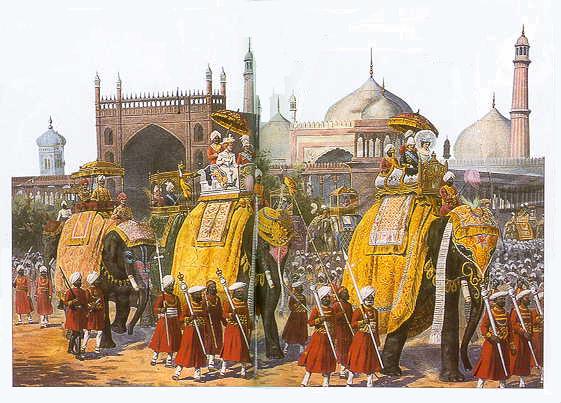
Curzon's Delhi Durbar (1903):
Such assemblies announced both the grandeur and the political might of British
rule in India.
Refer to
Loot:
in search of the East India Company - By
Nick Robins
and
How
India became poor - indiarealist.com
***
The supremacy of the British over most of India was left with little challenge,
and they could now embark in right earnest on their set task: the draining of India's
fabulous wealth. Writing
to the future King Charles I in 1616, England's first ambassador to the court of
the Mughal Jahangir expressed his amazement at the
"jewellshe sawthere. Hee isthe treasury of the world," wrote Sir
Thomas Roe (1568-1644) the
first British ambassador, stays at the Mughal court,
breathlessly,
"buyeing all that comes, and heaping rich stones
as if hee would rather build than weare them."
While most eighteenth-century European travelers to India described her
as "flourishing," less than a century later she had sunk into depths of dismal
misery. One British historian noted in 1901:
"Time was, not more distant than a
century and a half ago, when Bengal was much more wealthy than was Britain."
The English historians of India,
Edward
Thompson
and
G. T. Garrett,
tell
us that
"a gold-lust unequalled since the hysteria that took hold of the Spaniards
of Cortes and Pizarro's age filled the English mind. Bengal in particular
was not to know peace again until she had been bled white."
For the monstrous financial immorality of the English conduct in India for many
a year after this, Robert Clive was largely
responsible. Clive, the great empire-builder, whose statue faces the India
Office in London today."
(source: Rise and Fulfillment of British rule in India
- By Edward Thompson and G. T. Garrett
London, 1935).
Jawaharlal Nehru
has observed: " It was pure loot. The 'Pagoda Tree' was shaken again and
again till the most terrible famines ravaged Bengal. This process was called
trade later on but that made little difference. Government called this so-called
trade, and trade was plunder. There are few instances in history of anything
like it. And it must be remembered that this lasted, under various names and
under different forms, not for a few years but for generations.
It is
significant that one of the Hindustani words which has become part of the
English language is 'loot.'
(source:
The
Discovery of India - By Jawaharlal Nehru.
p.297).
Koh-i-noor Diamond - a
lost property or a colonial swindle?
The
most famous diamond in the world, the Kohinoor or Padshahnama, was found in the Godawari River
in South India some 4,000 years ago.
 In 1849 it was taken
by the British East India Company as partial indemnity after the Sikh Wars and
was presented to Queen Victoria. At the time, its value was estimated at
$700,000. In 1849 it was taken
by the British East India Company as partial indemnity after the Sikh Wars and
was presented to Queen Victoria. At the time, its value was estimated at
$700,000.
In 1851 Victoria decided to recut the
Kohinoor. This undertaking
required 38 days at a cost of $40,000 and the extraordinary stone was reduced to
108 carats. In 1911 a new crown was made for the coronation of Queen Mary with
the KOH-I-NOOR as the center stone. In 1937, it was transferred to the crown of
Queen Elizabeth (now Queen Mother) for her coronation.
Today,
the Kohinoor is still part of the British crown jewels and is displayed in the
Tower of London under heavy security cover.
According to
Brooke
Adams, the American writer:
"Possibly
since the world began, no investment has ever yielded the profit reaped from the
Indian plunder, because for nearly fifty years Great Britain stood
without a competition."
(source:
The
Law of Civilization and Decay - By Brooke Adams
1928 p. 259-60).
The British would often think of their conquest
in India as fortuitous. It gratified a cherished conceit about the Englishman's
amateurish innocence and it obviated the need to confront awkward questions -
like how such aggression could be justified.
(source:
India:
A History - By John Keay
p. 383).
Imperialism was born out of and maintained by
(primarily) economic and racial self-interest.
Another even asserted that Britain's Industrial Revolution could not have taken off
without the influx of money that followed the conquest of Bengal:
"Very soon after
Plassey [in 1757], the Bengal plunder began to arrive in London, and the effect appears to
have been instantaneous, for all the authorities agree that the 'industrial revolution'...
began with the year 1760.... Possibly since the world began no investment has ever yielded
the profit reaped from the Indian plunder."
"Blessed are
the meek: for they shall inherit the earth."? -
Matthew 5:5 (Holy Bible)
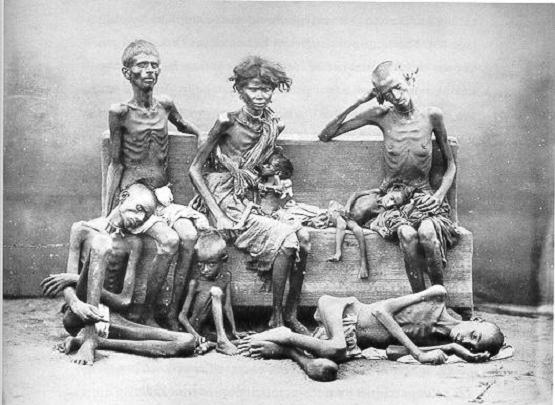
Madras Famine 1877-1878
Willoughby Hooper - Album print private collection
(image source:
Indian Art - By Vidya Dehejia
p. 399-402).
"According
to British
history, there was no freedom movement in India, no man made famines, no transfer of huge resources from
India
to
Britain
, no destruction of Indian industries and agriculture by the British rule, but
only a very benign and benevolent British rule in India
."
***
 Francois Marie Arouet Voltaire
(1694-1774)
France's greatest writers and philosophers, was a theist, and a
bitter critic of the Church,
too, had painted
the motives for Europe's interest in India in stark language: Francois Marie Arouet Voltaire
(1694-1774)
France's greatest writers and philosophers, was a theist, and a
bitter critic of the Church,
too, had painted
the motives for Europe's interest in India in stark language:
"No sooner did India
begin to be known to the Occident's barbarians than she was the object of their
greed, so when these barbarians became civilized and industrious,
and created new needs for themselves..."
(source:
Fragments historiques sur l'Inde - By
Francois Marie Arouet Voltaire
p. 383). For more on Voltaire refer to
chapter on
Quotes.
Refer to
Jesus
Christ: Artifice for Aggression - By Sita Ram Goel
and
Refer
to QuickTime trailer and Part One of the film
The
God Awful Truth.
But unlike the Portuguese, the British were anxious to clothe their greed in
lofty ideals: the "white man's burden" of civilizing (and, naturally,
Christianizing) less enlightened races, the "divinely ordained mission" of
bringing to India the glory of Europe's commercial and industrial civilization, and so
forth.
The ideology of empire: the
concept of civilizing mission, material profit, the triumph of civilization over
barbarism, was ardently supported by the missionary organizations.
Articles, pamphlets, speeches, thick volumes began pouring forth by the hundreds
year after year in praise of the "tremendous task of rescuing India" from the
darkness into which she had fallen. Understandably, the recognition of India's far more
ancient and refined civilization made such noble motives untenable. Thus began a
systematic campaign to disparage not only this civilization, its culture and society, but
the very roots of Hinduism.
(Please refer to the poem
White
Man's Burden - By Rudyard Kipling. "White man's
burden" as a euphemism for imperialism.
Also refer
to
Late
Victorian Holocausts - By Mike Davis).
(source:
The Invasion That Never Was -
By Michel Danino and Sujata
Nahar
p. 16).
Refer to
Jesus
Christ: Artifice for Aggression - By Sita Ram Goel
It is in such a context, that a man like Voltaire
considered India "famous for its laws and sciences" and deplored
the mounting European preoccupation (both individual and national) of those in
India with the amassing of "immense fortunes."
This quest
for riches intensified the struggles, plunder, etc. during his own time, and
made him remark that "If the Indians had remained unknown to the Tartars
and to us, they would have been the happiest people in the world."
(source:
Indian Science
and Technology in the Eighteenth Century: Some Contemporary European Accounts -
By Dharampal
Impex India. 1971. p. LXIII).
***
Inevitably the English in India became dishonest
on a scale which astounded compatriots who visited them. Robert
Clive
told the court of directors of the East India Company in 1765
of the conditions he found:
"The sudden and among many the unwarrantable
acquisition of riches had introduced luxury in every shape, and its more
pernicious aspect...everyone thought he had the right to enrich himself, at all
events, with as much expedition as possible...The sources of tyranny and
oppression, which have been opened by the European agents acting under the
authority of the Company's servants...."
 The
excesses of high officials, nicknamed the 'nabobs' provoked outrage. The poet
William
Cowper (1731-1800) expressed it with passion in 1781: The
excesses of high officials, nicknamed the 'nabobs' provoked outrage. The poet
William
Cowper (1731-1800) expressed it with passion in 1781:
"Hast thou, though suckled at
fair freedom's breast,
Exported slav'ry to the conquer'd East
Pull'd down the tyrants India serv'd with dread
And rais'd thyself a greater, in their stead?
It was none the less undeniable that commerce
with India had done wonders for England's comfort and well-being. As with the
ownership of slave plantations in the West Indies, the eastern trade was hugely
rewarding. It helped London become a financial center and funded the building of
many stately homes.
(source:
Empires
of the Monsoon: A history of the Indian ocean and its invaders - By Richard
Hall
p. 328-329).
After the British conquest,
India lay prostrate at the feet of her cruel conqueror.
Many
historians, such as
Frenchman Guy Deleury,
have documented the
economic rape of India by
the British
:
"Industrially
the British suffocated India, gradually strangling Indian industries whose
finished products, textiles in particular, were of a quality unique in the world
which has made them famous over the centuries. Instead they oriented Indian
industries towards jute, cotton, tea, oil seeds, which they needed as raw
materials for their home industries. They employed cheap labor for the
enterprises while traditional artisans were perishing. India, which used to be a
land of plenty, where milk and honey flowed started drying"
(source:
Le
Modele Indou, by Guy Deleury.
Hachette, le
Temps & les hommes. 1978).
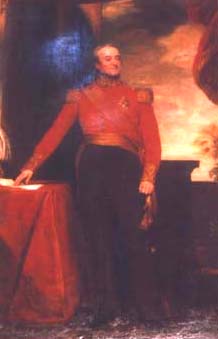 Claude
Alvares
in his book,
Decolonizing
History: Technology and Culture in India, China and the West 1492 to the Present
Day,
states that
before the East India Company arrived in the sub-continent, there was nothing
produced in Europe which India needed. It's own industrial techniques, of great
antiquity, had a richness and subtlety far superior to any which European
traders had to offer. Such self reliance could not be permitted to endure. And
the arrival of the East India Company at Surat in Gujrat in 1608 swiftly ensured
that it would not do so.
The incursions into
Asia - Indonesia, India and China - by what it has become cliché to call
"the first transnational " became a story of predatory and coercive
violence, in which places were indeed traded: India forfeited its vast
superiority in handicrafts and manufactures, and was compelled to open its
markets to inferior products from Britain. Claude
Alvares
in his book,
Decolonizing
History: Technology and Culture in India, China and the West 1492 to the Present
Day,
states that
before the East India Company arrived in the sub-continent, there was nothing
produced in Europe which India needed. It's own industrial techniques, of great
antiquity, had a richness and subtlety far superior to any which European
traders had to offer. Such self reliance could not be permitted to endure. And
the arrival of the East India Company at Surat in Gujrat in 1608 swiftly ensured
that it would not do so.
The incursions into
Asia - Indonesia, India and China - by what it has become cliché to call
"the first transnational " became a story of predatory and coercive
violence, in which places were indeed traded: India forfeited its vast
superiority in handicrafts and manufactures, and was compelled to open its
markets to inferior products from Britain.
By 1620, 50,000 pieces
of chintz reached England; in 1720, this reached 600,000 pieces. The muslins,
calicoes and chintzes astonished with their craftsmanship, sophistication and
sheer beauty. So much, that there were complaints against the imports of Indian
fabrics from the very beginning. By 1700, Acts were passed which prohibited the
introduction of printed calicoes for domestic use, either as apparel or
furniture, under a penalty of £200 on the wearer or seller. There was no
demand in India for Manchester cottons, though these were forced on India with
the ending of the Company's monopoly in 1813, any more than there was
"demand" in China for opium: the destruction of the indigenous weaving
industry was described by
'Governor
- General' William Bentinck
(1774-1839) as
a
misery without parallel in the history of Commerce. "The bones of the
cotton weavers are blanching plains of' India.
(source:
Independence
and illusion of equality - By Jeremy
Seabrook).
Hindusthan was always a
proverbially rich country.
Now,
Mother
Theresa has made it something of a synonym with poverty.
But this
poverty cannot be blamed on Hindu culture. After the Muslims had blindly
plundered large parts of the country and destroyed so much, the British made an
even more systematic and profound attack on India's natural prosperity. They
reorganized its economy to suit their own ends, integrating it in their colonial
trade system, again to the country's detriment. When the British arrived, India
was one of the most industrialized countries in the world, and one of its top
exporters. The British economical policies, coupled with the world-wide impact
of modern industry on the pre-modern economies, destroyed much of India's
prosperity and economical; self-reliance.
(source:
Ayodhya
and After - By Koenraad Elst).
This
new imperialism tries to justify itself with a story about Britain's
introduction of free trade, the rule of law, democracy and western civilization
across the globe. "No organization has done more to impose western
norms of law, order and governance around the world." That
story is a fable dreamt up by 19th-century propagandists to sell the benefits of
empire to an uncertain public back home.
Instead of enriching the world, the British empire impoverished it. Far from
being backward and uncivilized, India exported high quality manufactured goods
to Britain's fashionable society. Aristocrats had Indian chintz on their walls
and Indian cloth on their tables. British manufacturers often labeled poorer
quality British imitations as "Indian" to dupe customers into buying
their own shoddy goods. After all, why were the British
interested in trading with Asia at all?
It
was to make money out of a wealthy society - not to invest and civilize.
(source:
Revisionist
TV history of Britain's empire is an attempt to justify the new imperial order
- by Jon E Wilson - Guardian).
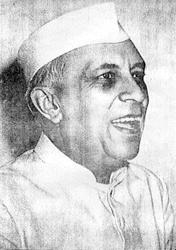 According to British records, one million Indians died of famine between
1800 and 1825, 4 million between 1825-1850, 5 million between 1850-1875 and 15
million between 1875-1900. Thus 25 million Indians died in 100 years ! The
British must be proud of their bloody record. It is probably more honorable and
straightforward to kill in the name of Allah, than in the guise of petty
commercial interests and total disregard for the ways of a 5000 year civilization.
Thus, by the beginning of the 20th century, India was bled dry and there were no
resources left. According to British records, one million Indians died of famine between
1800 and 1825, 4 million between 1825-1850, 5 million between 1850-1875 and 15
million between 1875-1900. Thus 25 million Indians died in 100 years ! The
British must be proud of their bloody record. It is probably more honorable and
straightforward to kill in the name of Allah, than in the guise of petty
commercial interests and total disregard for the ways of a 5000 year civilization.
Thus, by the beginning of the 20th century, India was bled dry and there were no
resources left.
(source:
India's
Self Denial - By Francois Gautier)
Jawaharlal
Nehru wrote that those parts of India which had been longest under British rule were the
poorest: Bengal once so rich and flourishing after 187 years of British rule is a miserable
mass of poverty-stricken, starving and dying people.
India was sometimes called the 'milch cow of the Empire',
and indeed at times it seemed to
be so regarded by politicians and bureaucrats in London.
Educated Indians were embittered when India was made to pay the entire cost of the India
Office building in Whitehall. They were further outraged when in 1867 it was made to pay
the full costs of entertaining two thousand five hundred guests at a lavish ball
honoring
the Sultan of Turkey.
***
India Must Be Bled
Lord Robert Arthur Salisbury,
(1830-1903) as Secretary of
State for India, in a Minute said:
"As
India must be bled the
lancet should be directed to the parts where the blood is congested or at least
sufficient, not to those (the agricultural people) which are already feeble from
the want of it."
But the drain is not all. All the
wars by which the British Indian Empire is built up have not, only been fought
mainly with Indian blood, but every farthing of expenditure incurred in all wars
and proceedings within and beyond the frontiers of India by which the Empire has
been built up and maintained up to the present day has been erected from the
Indian people. Britain has spent nothing.
What would Britain's condition
be under a similar fate?
(source:
Poverty
and Un-British Rule in India - By Dadabhai Naoroji
- p. ix-x).
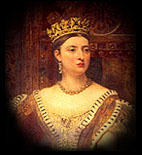 In the case of the former foreign
conquests, the invaders (Islamic) either retired with their plunder and booty,
or became the rulers of the country. When they plundered, and went back, they
made, no doubt, great wounds; but India, with her industry, revived and healed
the wounds. With the English the case is peculiar. They are the great wounds of
the first wars in the burden of the public debt, and those wounds are kept
perpetually open and widening, by draining the life-blood in a continuous
stream.
The former rulers
were like butchers hacking here and there, but the English with their scientific
scalpel cut to the very heart, and yet, lo! there is no wound to be seen, and
soon the plaster of the high talk of civilization, progress, and what not,
covers up the wound! The
English rulers stand sentinel at the front door of India, challenging the whole
world, that they do and shall protect India against all comers, and themselves
carry away by a back-door the very treasure,
they stand sentinel to protect. In the case of the former foreign
conquests, the invaders (Islamic) either retired with their plunder and booty,
or became the rulers of the country. When they plundered, and went back, they
made, no doubt, great wounds; but India, with her industry, revived and healed
the wounds. With the English the case is peculiar. They are the great wounds of
the first wars in the burden of the public debt, and those wounds are kept
perpetually open and widening, by draining the life-blood in a continuous
stream.
The former rulers
were like butchers hacking here and there, but the English with their scientific
scalpel cut to the very heart, and yet, lo! there is no wound to be seen, and
soon the plaster of the high talk of civilization, progress, and what not,
covers up the wound! The
English rulers stand sentinel at the front door of India, challenging the whole
world, that they do and shall protect India against all comers, and themselves
carry away by a back-door the very treasure,
they stand sentinel to protect.
(source:
Poverty
and Un-British Rule in India - By Dadabhai Naoroji
p. 211-213).
Said one of the great host of
retired Indian civilians, R. N. Cust, himself on pension, drawing from India
annually the income of well-nigh seventeen hundred people:
"There is a
constant drawing away of the wealth of India to England, as Englishmen grow fat
on accumulations made in India, while the Indian remains as lean as ever...Every
post of dignity and high emolment, civil and military, is held by a stranger and
a foreigner....it is the jealousy of the middle-class Briton, the hungry Scot,
that wants his salary, that shuts out all Native aspirations....The consequence
will be terrible."
These are among the reasons why
India is poor, and, being poor, is - by the standard of the age - necessarily
and irredeemably inferior."
(source:
'Prosperous'
British India: A Revelation from Official Records - By William Digby
p. 211-212).
Sir Henry Cotton
has said:
"Even the Russian Government, which we are accustomed to look
upon as the ideal of autocracy, is not such a typical autocracy as the
Government of India."
(source:
India
And Her People - By Swami Abhedananda
p. 164).
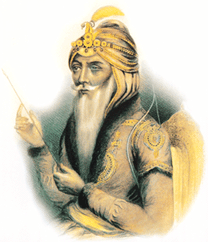 After
the second Anglo Sikh war, the British exiled the boy Duleep Singh to Fatehgarh,
in the care of a British guardian. Unlike previous British rulers, Lord
Dalhousie wished to transform India, towards which end he promoted
and supported the work of
Christian missionaries:
Fatehgarh just happened to be a mission. John Login and his wife, who had taken
on the parental role in the boy's life, just happened to be devout Christians.
Duleep was encouraged to have two English boys as his closest friends, one of
whom just happened to be the son of a missionary. The textbooks he was given
just happened to be full of Christian messages. His servant, Bhajan Lal, just
happened to be a Christian convert. And Bhajan Lal just happened to read from
the Bible to the boy every night. Duleep Singh was, in fact, totally dependent
on the goodwill of his prisoners and limited to living in the center of
Christian missionary activity. After
the second Anglo Sikh war, the British exiled the boy Duleep Singh to Fatehgarh,
in the care of a British guardian. Unlike previous British rulers, Lord
Dalhousie wished to transform India, towards which end he promoted
and supported the work of
Christian missionaries:
Fatehgarh just happened to be a mission. John Login and his wife, who had taken
on the parental role in the boy's life, just happened to be devout Christians.
Duleep was encouraged to have two English boys as his closest friends, one of
whom just happened to be the son of a missionary. The textbooks he was given
just happened to be full of Christian messages. His servant, Bhajan Lal, just
happened to be a Christian convert. And Bhajan Lal just happened to read from
the Bible to the boy every night. Duleep Singh was, in fact, totally dependent
on the goodwill of his prisoners and limited to living in the center of
Christian missionary activity.
What
happened next?
Exactly what can be expected when
missionaries shower the weak with their mercies: The last Sikh ruler of the
kingdom of Maharaja Ranjit Singh was surreptitiously converted to Christianity,
dispatched to England and resettled near Cambridge, thereby minimizing all
chances of his becoming a rallying point for the people of Punjab.
Ranjit
Singh’s
golden chair along with boxes full of jewels was also dispatched for the Board
of Directors of the East India Company and the Queen. To ensure that young
Duleep Singh, the last Sikh ruler of the kingdom of Ranjit Singh, should not
become a rallying point for the people of Punjab, he was surreptitiously
converted to Christianity and hurriedly sent to England. To minimise all chances
of his return to Punjab and claiming sovereignty after becoming of age, he was
made to marry princess Victoria Gouramma of Coorg, also an Indian convert to
Christianity and settled in Elveden Estate, near Cambridge especially purchased
for him.
Next,
"A facade of a ceremony was arranged in
which the young prince was made to present the famous Koh-i-Noor to Queen
Victoria and 13 most valuable relics pertaining to Maharaja Ranjit Singh to the
Prince of Wales.
The remaining jewellery in the Toshkhana of the
Maharaja was either taken over by the British officials or auctioned to public
thus putting to an end the glory and grandeur of the mighty empire of a mighty
ruler of Punjab" (The
Tribune, April 8, 2001).
Some of the artifacts belonging to Maharaja Ranjit
Singh's regime have been displayed at
Victoria
Albert Museum, Osborne House and several other museums of
Scotland and Britain. In fact, the British Government has been under tremendous
pressure from several of the sovereign nations, which were once a part of its
Imperial Empire, to return the artifacts and other valuable items of their
historic interest, which the British had forcibly taken
from the then rulers as a "gift" or otherwise. Besides
India and Greece, even Ethiopia, China and Italy have been pressing the British
Government to return their artifacts. The World Jews Congress has been demanding
160 artifacts now displayed in various museums in Scotland.
(source:
Tribuneindia.com
and
Towards
Balkanisation, III: Missionaries - Varsha Bhosle - rediff.com).
  
Page < 1 2 3 4 5 6 7 8 9 10 11 12 13 14 15 16 17 18 19 20 21 22 23 24 >
|